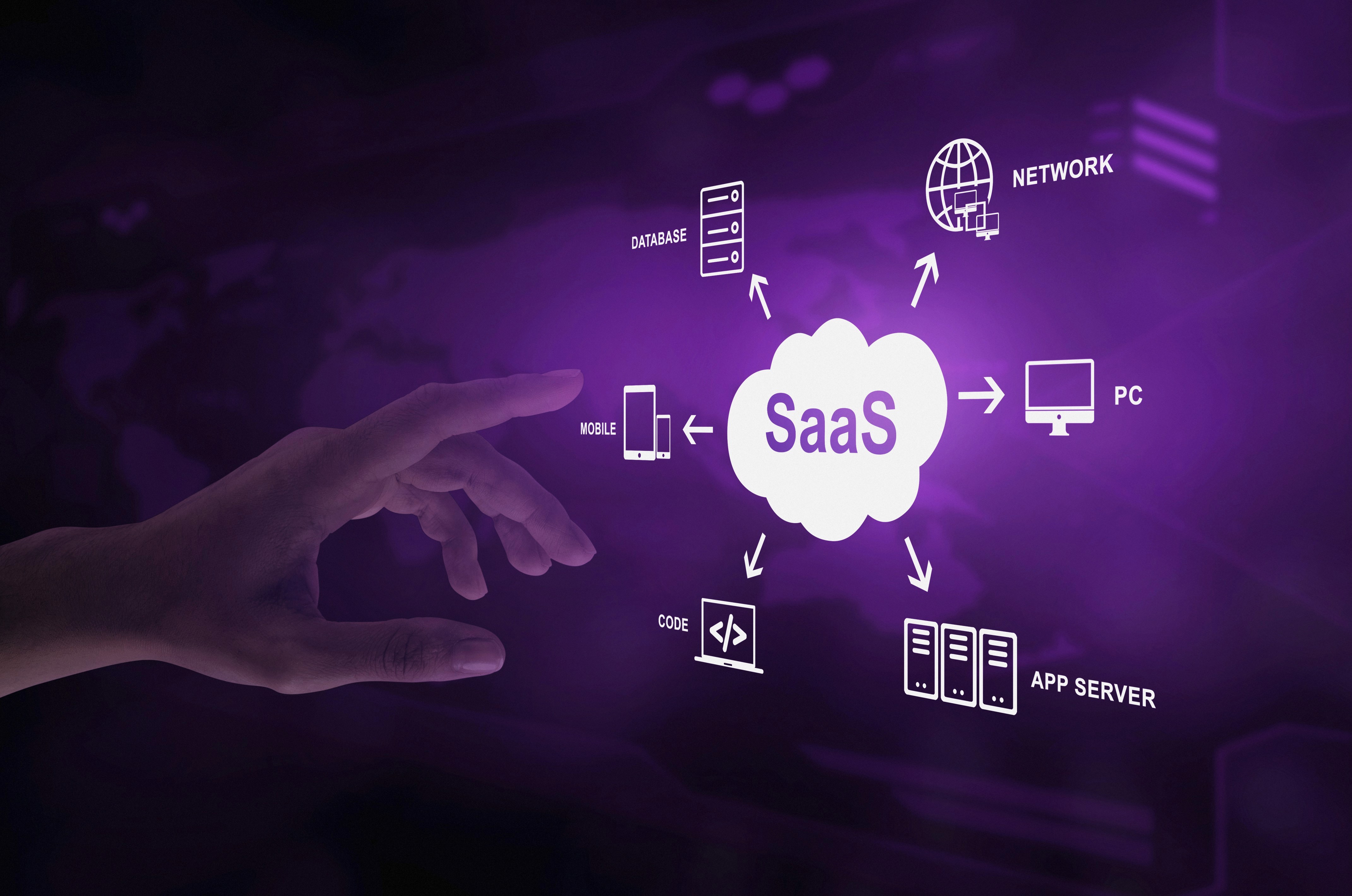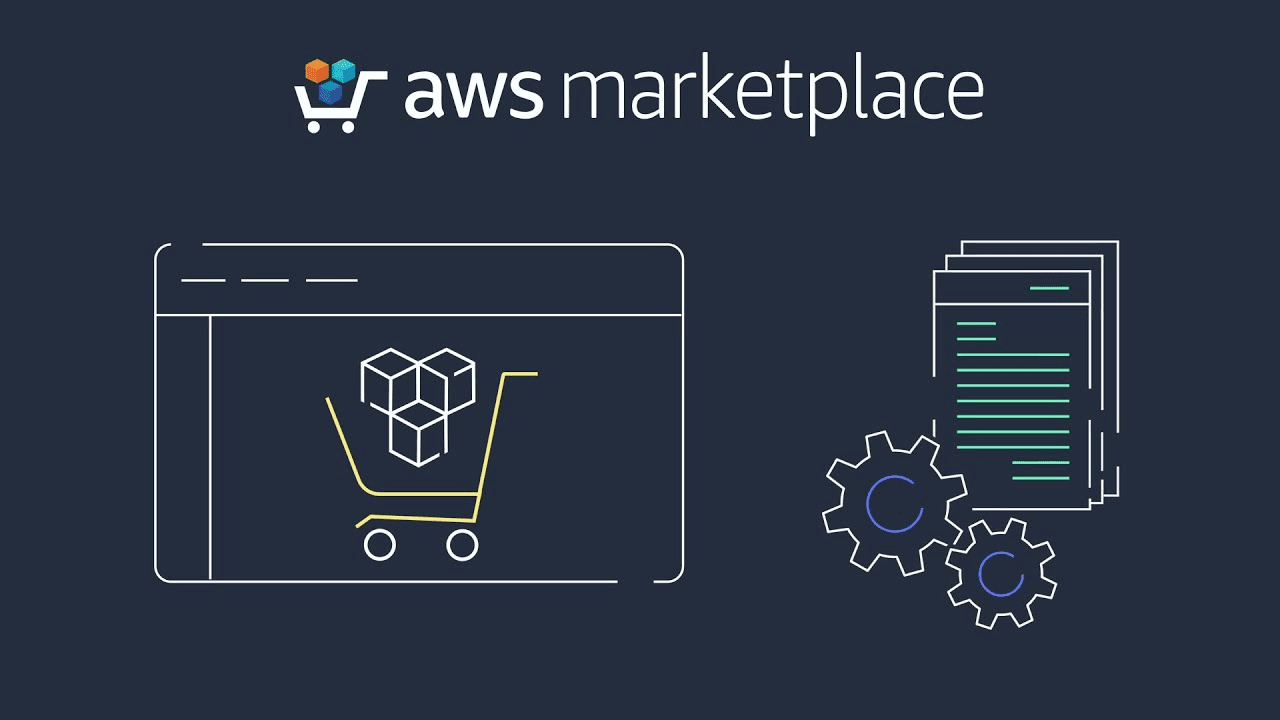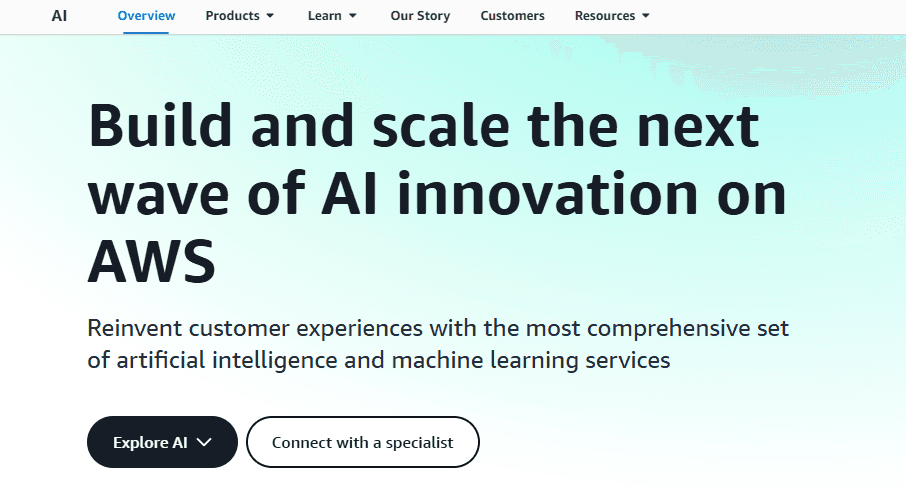Exploring the AWS Ecosystem: A Guide to Cloud Innovation for Ambitious Tech Professionals
Exploring the AWS Ecosystem: A Guide to Cloud Innovation for Ambitious Tech Professionals
Oct 28, 2024
Jithin
Oct 28, 2024


Jithin





AWS Ecosystem: Powering Innovation in Cloud Computing
As businesses and developers increasingly turn to cloud computing, Amazon Web Services (AWS) has emerged as a leading player in the field. Imagine a young, ambitious tech professional—let’s call her Ananya. Ananya, like many others, stands at a critical crossroads. With her career progressing in cloud computing, she is curious about Amazon Web Services (AWS) but unsure where to start. Sound familiar? You are not alone. AWS has built a reputation as a complex but highly rewarding ecosystem, and understanding its full potential can open doors to the fast-evolving tech world.
AWS (Amazon Web Services), is not just a cloud platform; it's a comprehensive ecosystem of cloud tools, services, and partnerships designed to support the ambitious—from DevOps to data engineering. With a comprehensive suite of Services, AWS empowers users to build, deploy, and manage applications at scale. This article breaks down the AWS ecosystem, exploring its main elements, from cloud infrastructure to machine learning and beyond. Let’s dive in and explore how AWS is shaping the future of cloud computing.
What is the AWS Ecosystem?
The AWS ecosystem encompasses the expansive range of services, tools, and partners that make up Amazon Web Services. These are not just tools to store data; AWS goes beyond simple cloud solutions to deliver everything from infrastructure as a service (IaaS) to complex artificial intelligence (AI) tools. An AWS expert hold all the expertise - Think of AWS as a marketplace for technology—a cloud computing ecosystem where businesses, developers, and even students can find tools for any project or challenge. Sounds interesting, right.
AWS Cloud Ecosystem Essentials
At its core, the AWS cloud ecosystem offers services grouped into categories of developer essentials like computing power, storage, database management, analytics, artificial intelligence, and the Internet of Things (IoT). Each of these plays a unique role in supporting business operations, making AWS a go-to platform for scalable, customizable solutions.
Key Components of the AWS Ecosystem,
1. AWS Cloud Infrastructure
AWS’s cloud infrastructure is the backbone of its services, providing secure and scalable solutions for businesses of all sizes. It includes data centers located across the globe, connected through Amazon’s powerful network. This infrastructure not only facilitates fast and reliable access to data but also makes AWS ideal for handling large-scale applications with high data demands. The AWS cloud infrastructure powers some of the most demanding applications globally, offering unparalleled security and flexibility.
2. AWS Marketplace
The AWS Marketplace functions like an online store where developers and businesses can find, purchase, and deploy software that runs on AWS. From database software to machine learning tools, it provides a wide range of solutions that complement the core AWS services. The marketplace fosters a vendor ecosystem, allowing independent software vendors (ISVs) to offer their solutions, which accelerates innovation by allowing businesses to use pre-existing tools rather than reinventing the wheel.

Source: Image
3. AWS Big Data Ecosystem
Big data is at the heart of the AWS ecosystem. AWS provides powerful analytics tools like Amazon Redshift for data warehousing, Amazon Kinesis for real-time data streaming, and Amazon EMR for big data processing. These tools allow companies to gather, process, and analyze large volumes of data to gain insights and make informed decisions. As Wikipedia explains, big data analytics are essential for understanding complex patterns in massive datasets, which are increasingly valuable in sectors like healthcare, finance, and e-commerce.
AWS and Cloud Computing: A Natural Partnership
AWS was a pioneer in the cloud computing space, and today, it remains a leader. Its platform provides cloud-based solutions that range from simple storage services to complex machine-learning models. In cloud computing, AWS enables businesses to build applications, process big data, and scale their resources dynamically.
With cloud adoption, companies no longer need extensive physical servers or infrastructure; instead, they can pay for what they use, allowing small startups to compete with established giants. This aspect of AWS has made it an industry staple, empowering everyone from solo entrepreneurs to large corporations.
Understanding AWS’s Partner Ecosystem
AWS’s partner ecosystem is an essential component of its offerings. This network includes third-party providers who create custom solutions that complement AWS’s services, helping organizations maximize their cloud investments. The AWS Partner Network (APN) supports thousands of technology and consulting companies worldwide, enabling them to offer tailored solutions to meet specific client needs.
The partner ecosystem allows AWS to leverage external expertise, delivering enhanced services in areas like migration, security, and application modernization. AWS partners range from small consulting firms to large multinational corporations, creating an extensive support network for AWS users.
AWS IoT Ecosystem: Connecting the Physical and Digital Worlds
In our increasingly interconnected world, the Internet of Things (IoT) brings both opportunities and challenges. AWS’s IoT ecosystem provides tools that enable companies to manage IoT devices, analyze data, and secure connected environments. From industrial machinery to home automation systems, the AWS IoT ecosystem supports a variety of use cases, empowering businesses to innovate in sectors like manufacturing, retail, and logistics.
With tools like AWS IoT Core, companies can process and analyze data in real-time. Imagine a manufacturing company using AWS IoT Core to monitor equipment and predict maintenance needs before breakdowns occur. This predictive maintenance approach saves money and minimizes downtime, creating a more efficient operation.
AWS’s Role in Machine Learning and AI

AWS has positioned itself as a frontrunner in the field of machine learning and artificial intelligence. With services like Amazon SageMaker, developers and data scientists can build, train, and deploy machine learning models at scale. The AWS machine learning ecosystem simplifies model development, making it accessible even to teams with limited AI expertise.
AWS also provides pre-trained AI models, reducing the need for businesses to develop AI from scratch. Imagine a retail company using AWS’s image recognition models to enhance customer experience by enabling image-based searches on its platform. Such use cases highlight how AWS’s AI capabilities empower businesses to innovate without requiring deep AI knowledge.
Security and Compliance in the AWS Ecosystem
One major concern for companies moving to the cloud is security. AWS addresses this through a robust set of security features, including encryption, identity access management (IAM), and compliance certifications. AWS adheres to strict compliance standards, including HIPAA, GDPR, and SOC 2, ensuring that data remains protected.
In fact, AWS’s infrastructure and security policies have become a model in the industry. AWS also partners with security vendors, creating a comprehensive, layered approach to protecting data, which is vital for industries like healthcare, finance, and government.
AWS Ecosystem and the Future of Cloud Computing
AWS isn’t standing still. It continues to evolve, adapting to the changing needs of the tech landscape. With emerging technologies like quantum computing, AWS is pioneering next-gen solutions that push the boundaries of what’s possible. The AWS ecosystem will likely continue expanding, offering new tools that make cloud computing more powerful and accessible than ever before.
For those embarking on a career in tech, understanding the AWS ecosystem can be transformative. Whether you’re interested in DevOps, data engineering, or machine learning, AWS offers a toolkit that adapts to your needs, helping you build solutions that shape the future.
Bringing It All Together
In a world where technology and data drive decisions, AWS offers a comprehensive ecosystem to support everything from app development to data analytics. Is AWS easy to learn? Any young tech enthusiast, now has a clear picture of what AWS offers and is ready to embark with cloud journey. With AWS, anyone can find the resources, tools, and support needed to thrive, leveraging AWS’s ecosystem to turn ambitious ideas into reality.
If you are looking to deepen your understanding or specialize in AWS technologies, there is no better time than now to start your journey. Skillect is here to guide you with aws courses and resources to help you excel in Cloud computing and beyond.
Conclusion
The AWS ecosystem offers a wealth of opportunities for businesses and developers alike. AWS is more than just a cloud provider; it’s an ecosystem that supports innovation, scalability, and collaboration across industries. Whether you are a tech professional looking to upskill or a company aiming to streamline operations, the AWS ecosystem offers something for everyone. From the AWS cloud ecosystem to AI, big data, and IoT, this ecosystem empowers businesses and individuals to stay competitive in an increasingly tech-driven world.
Are you ready to take the next step? Apply at Skillect today and unlock your potential in the AWS ecosystem and beyond.
Read More:
AWS S3: Everything You Need to Know About AWS S3
AWS Ecosystem: Powering Innovation in Cloud Computing
As businesses and developers increasingly turn to cloud computing, Amazon Web Services (AWS) has emerged as a leading player in the field. Imagine a young, ambitious tech professional—let’s call her Ananya. Ananya, like many others, stands at a critical crossroads. With her career progressing in cloud computing, she is curious about Amazon Web Services (AWS) but unsure where to start. Sound familiar? You are not alone. AWS has built a reputation as a complex but highly rewarding ecosystem, and understanding its full potential can open doors to the fast-evolving tech world.
AWS (Amazon Web Services), is not just a cloud platform; it's a comprehensive ecosystem of cloud tools, services, and partnerships designed to support the ambitious—from DevOps to data engineering. With a comprehensive suite of Services, AWS empowers users to build, deploy, and manage applications at scale. This article breaks down the AWS ecosystem, exploring its main elements, from cloud infrastructure to machine learning and beyond. Let’s dive in and explore how AWS is shaping the future of cloud computing.
What is the AWS Ecosystem?
The AWS ecosystem encompasses the expansive range of services, tools, and partners that make up Amazon Web Services. These are not just tools to store data; AWS goes beyond simple cloud solutions to deliver everything from infrastructure as a service (IaaS) to complex artificial intelligence (AI) tools. An AWS expert hold all the expertise - Think of AWS as a marketplace for technology—a cloud computing ecosystem where businesses, developers, and even students can find tools for any project or challenge. Sounds interesting, right.
AWS Cloud Ecosystem Essentials
At its core, the AWS cloud ecosystem offers services grouped into categories of developer essentials like computing power, storage, database management, analytics, artificial intelligence, and the Internet of Things (IoT). Each of these plays a unique role in supporting business operations, making AWS a go-to platform for scalable, customizable solutions.
Key Components of the AWS Ecosystem,
1. AWS Cloud Infrastructure
AWS’s cloud infrastructure is the backbone of its services, providing secure and scalable solutions for businesses of all sizes. It includes data centers located across the globe, connected through Amazon’s powerful network. This infrastructure not only facilitates fast and reliable access to data but also makes AWS ideal for handling large-scale applications with high data demands. The AWS cloud infrastructure powers some of the most demanding applications globally, offering unparalleled security and flexibility.
2. AWS Marketplace
The AWS Marketplace functions like an online store where developers and businesses can find, purchase, and deploy software that runs on AWS. From database software to machine learning tools, it provides a wide range of solutions that complement the core AWS services. The marketplace fosters a vendor ecosystem, allowing independent software vendors (ISVs) to offer their solutions, which accelerates innovation by allowing businesses to use pre-existing tools rather than reinventing the wheel.

Source: Image
3. AWS Big Data Ecosystem
Big data is at the heart of the AWS ecosystem. AWS provides powerful analytics tools like Amazon Redshift for data warehousing, Amazon Kinesis for real-time data streaming, and Amazon EMR for big data processing. These tools allow companies to gather, process, and analyze large volumes of data to gain insights and make informed decisions. As Wikipedia explains, big data analytics are essential for understanding complex patterns in massive datasets, which are increasingly valuable in sectors like healthcare, finance, and e-commerce.
AWS and Cloud Computing: A Natural Partnership
AWS was a pioneer in the cloud computing space, and today, it remains a leader. Its platform provides cloud-based solutions that range from simple storage services to complex machine-learning models. In cloud computing, AWS enables businesses to build applications, process big data, and scale their resources dynamically.
With cloud adoption, companies no longer need extensive physical servers or infrastructure; instead, they can pay for what they use, allowing small startups to compete with established giants. This aspect of AWS has made it an industry staple, empowering everyone from solo entrepreneurs to large corporations.
Understanding AWS’s Partner Ecosystem
AWS’s partner ecosystem is an essential component of its offerings. This network includes third-party providers who create custom solutions that complement AWS’s services, helping organizations maximize their cloud investments. The AWS Partner Network (APN) supports thousands of technology and consulting companies worldwide, enabling them to offer tailored solutions to meet specific client needs.
The partner ecosystem allows AWS to leverage external expertise, delivering enhanced services in areas like migration, security, and application modernization. AWS partners range from small consulting firms to large multinational corporations, creating an extensive support network for AWS users.
AWS IoT Ecosystem: Connecting the Physical and Digital Worlds
In our increasingly interconnected world, the Internet of Things (IoT) brings both opportunities and challenges. AWS’s IoT ecosystem provides tools that enable companies to manage IoT devices, analyze data, and secure connected environments. From industrial machinery to home automation systems, the AWS IoT ecosystem supports a variety of use cases, empowering businesses to innovate in sectors like manufacturing, retail, and logistics.
With tools like AWS IoT Core, companies can process and analyze data in real-time. Imagine a manufacturing company using AWS IoT Core to monitor equipment and predict maintenance needs before breakdowns occur. This predictive maintenance approach saves money and minimizes downtime, creating a more efficient operation.
AWS’s Role in Machine Learning and AI

AWS has positioned itself as a frontrunner in the field of machine learning and artificial intelligence. With services like Amazon SageMaker, developers and data scientists can build, train, and deploy machine learning models at scale. The AWS machine learning ecosystem simplifies model development, making it accessible even to teams with limited AI expertise.
AWS also provides pre-trained AI models, reducing the need for businesses to develop AI from scratch. Imagine a retail company using AWS’s image recognition models to enhance customer experience by enabling image-based searches on its platform. Such use cases highlight how AWS’s AI capabilities empower businesses to innovate without requiring deep AI knowledge.
Security and Compliance in the AWS Ecosystem
One major concern for companies moving to the cloud is security. AWS addresses this through a robust set of security features, including encryption, identity access management (IAM), and compliance certifications. AWS adheres to strict compliance standards, including HIPAA, GDPR, and SOC 2, ensuring that data remains protected.
In fact, AWS’s infrastructure and security policies have become a model in the industry. AWS also partners with security vendors, creating a comprehensive, layered approach to protecting data, which is vital for industries like healthcare, finance, and government.
AWS Ecosystem and the Future of Cloud Computing
AWS isn’t standing still. It continues to evolve, adapting to the changing needs of the tech landscape. With emerging technologies like quantum computing, AWS is pioneering next-gen solutions that push the boundaries of what’s possible. The AWS ecosystem will likely continue expanding, offering new tools that make cloud computing more powerful and accessible than ever before.
For those embarking on a career in tech, understanding the AWS ecosystem can be transformative. Whether you’re interested in DevOps, data engineering, or machine learning, AWS offers a toolkit that adapts to your needs, helping you build solutions that shape the future.
Bringing It All Together
In a world where technology and data drive decisions, AWS offers a comprehensive ecosystem to support everything from app development to data analytics. Is AWS easy to learn? Any young tech enthusiast, now has a clear picture of what AWS offers and is ready to embark with cloud journey. With AWS, anyone can find the resources, tools, and support needed to thrive, leveraging AWS’s ecosystem to turn ambitious ideas into reality.
If you are looking to deepen your understanding or specialize in AWS technologies, there is no better time than now to start your journey. Skillect is here to guide you with aws courses and resources to help you excel in Cloud computing and beyond.
Conclusion
The AWS ecosystem offers a wealth of opportunities for businesses and developers alike. AWS is more than just a cloud provider; it’s an ecosystem that supports innovation, scalability, and collaboration across industries. Whether you are a tech professional looking to upskill or a company aiming to streamline operations, the AWS ecosystem offers something for everyone. From the AWS cloud ecosystem to AI, big data, and IoT, this ecosystem empowers businesses and individuals to stay competitive in an increasingly tech-driven world.
Are you ready to take the next step? Apply at Skillect today and unlock your potential in the AWS ecosystem and beyond.
Read More:
AWS S3: Everything You Need to Know About AWS S3
